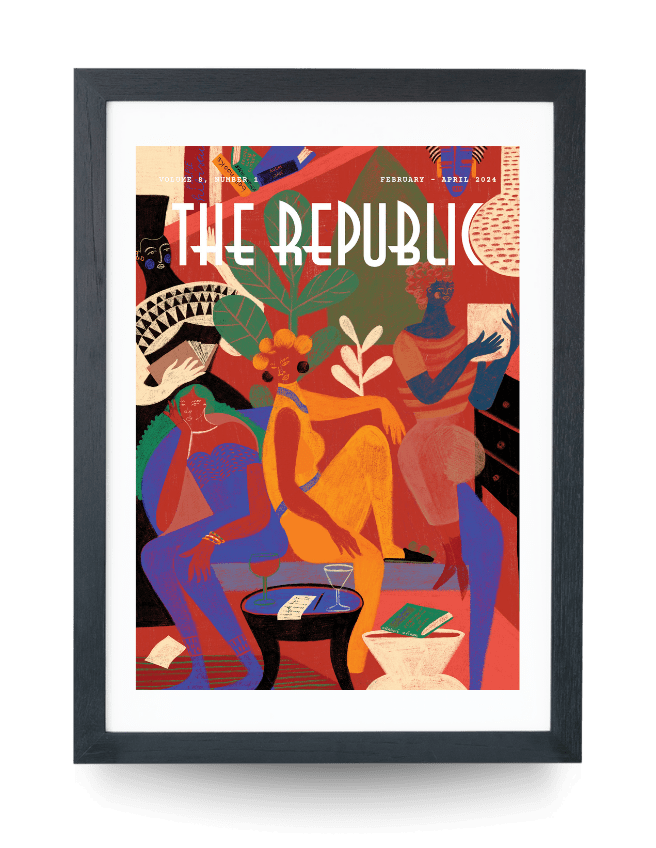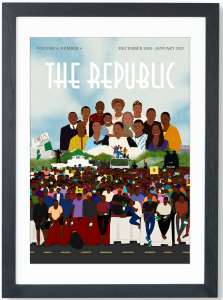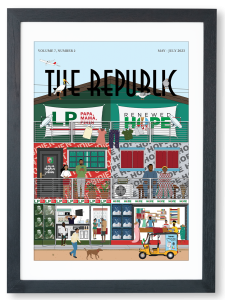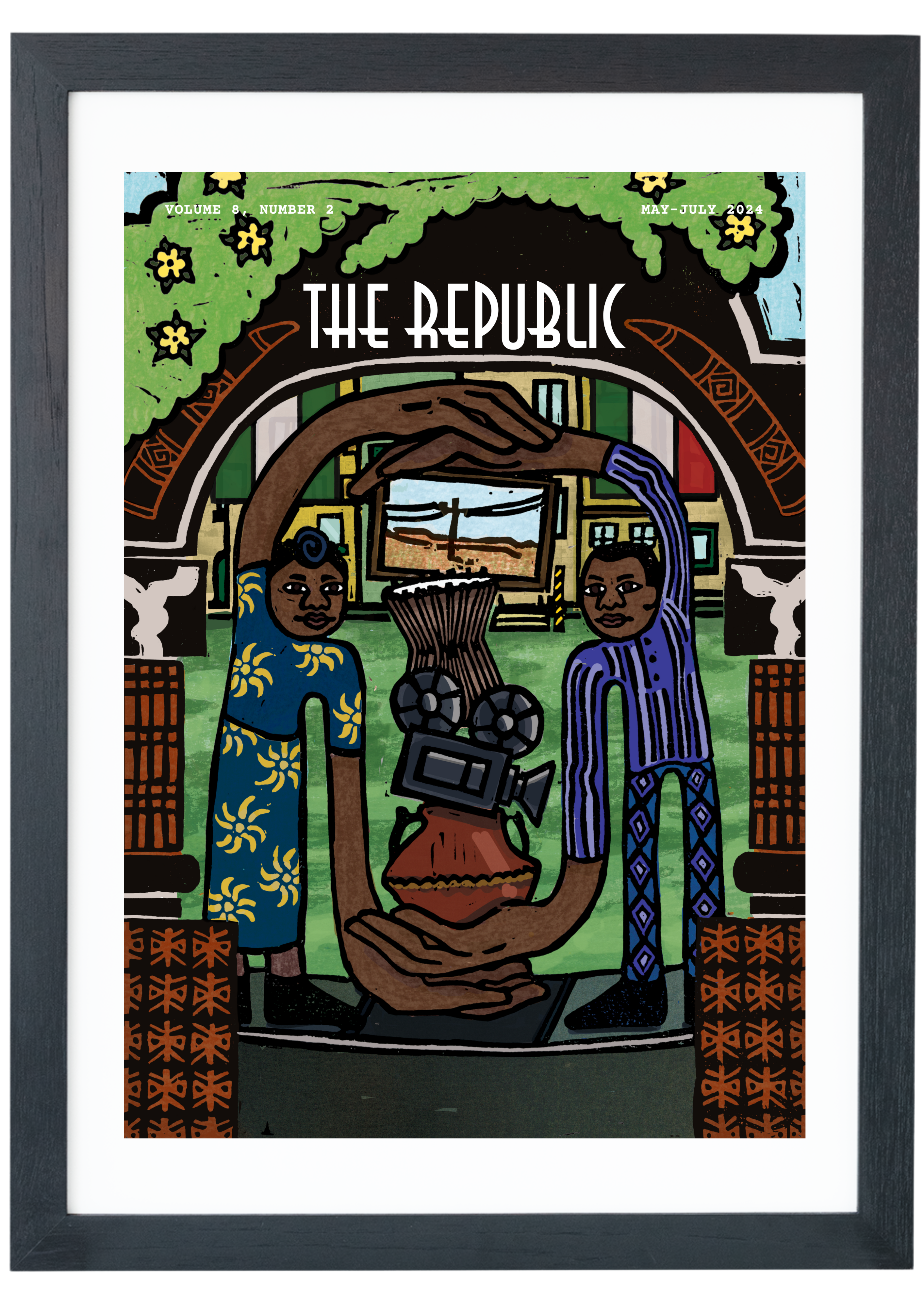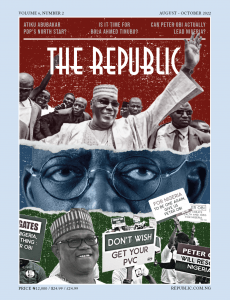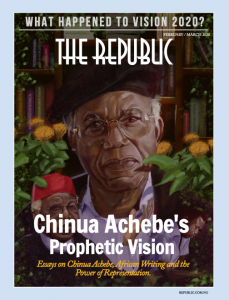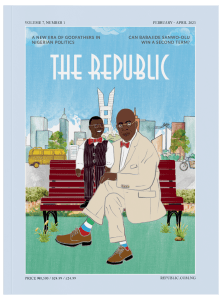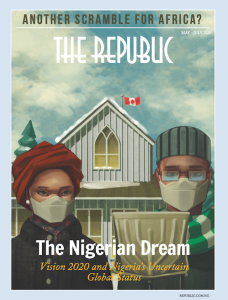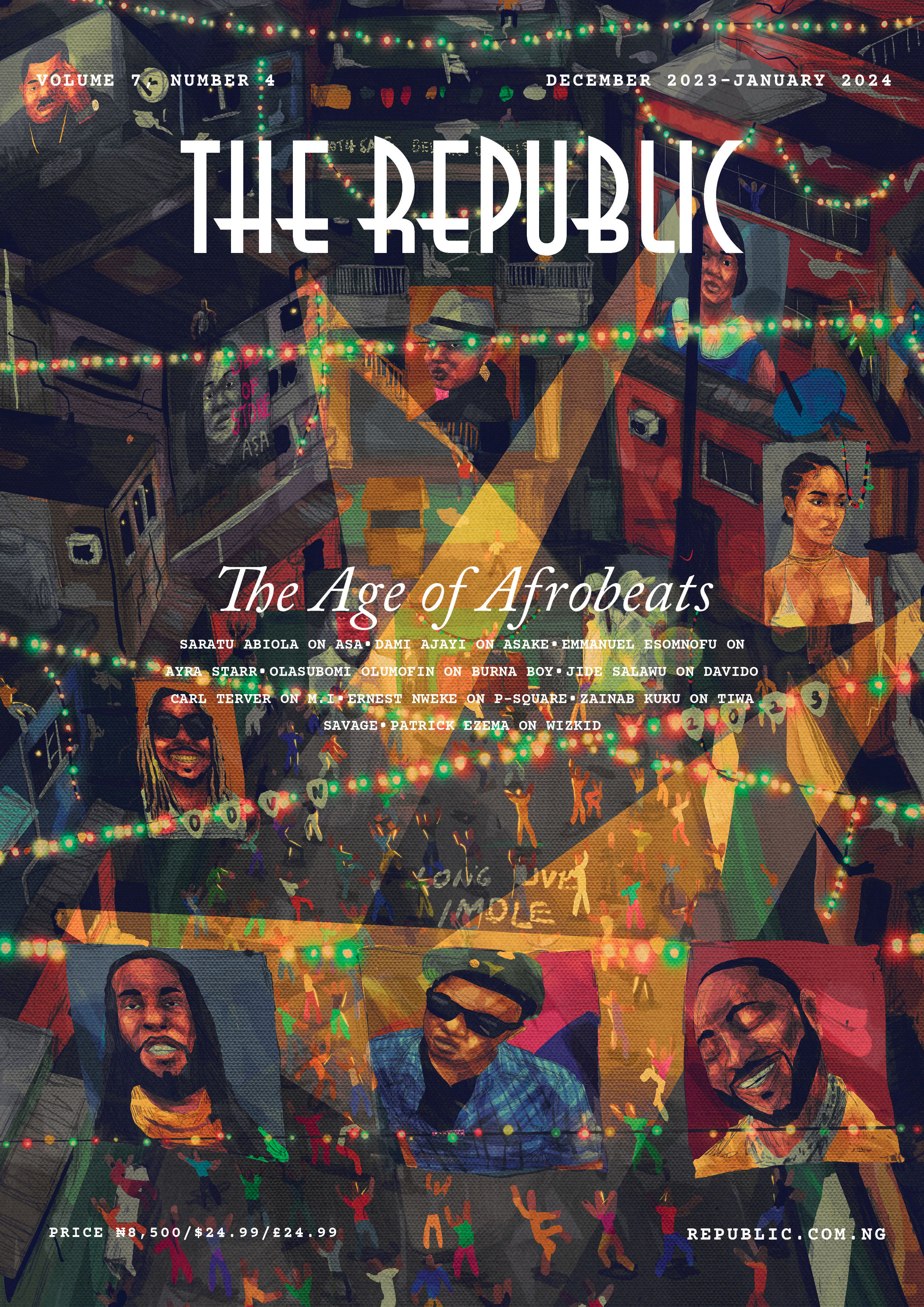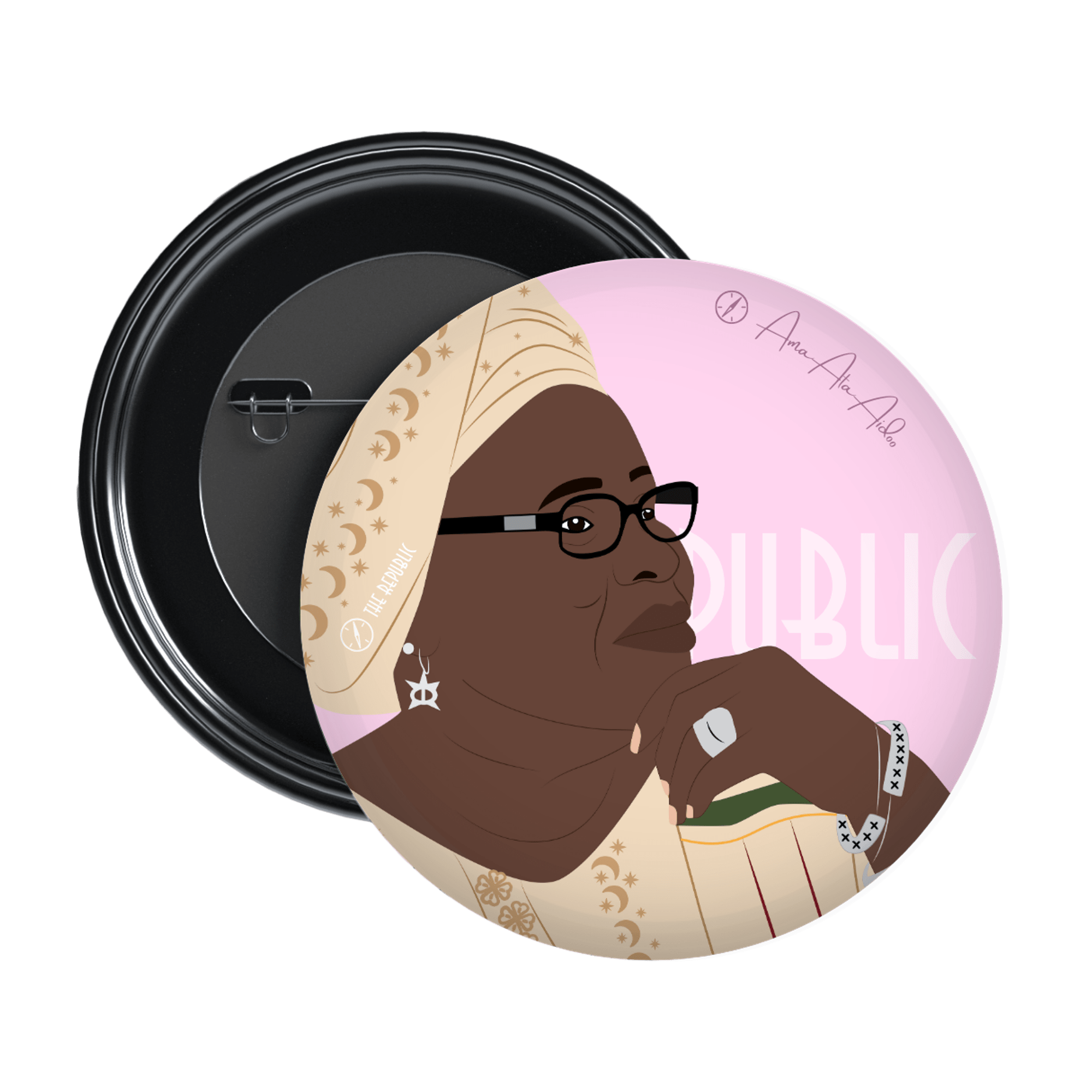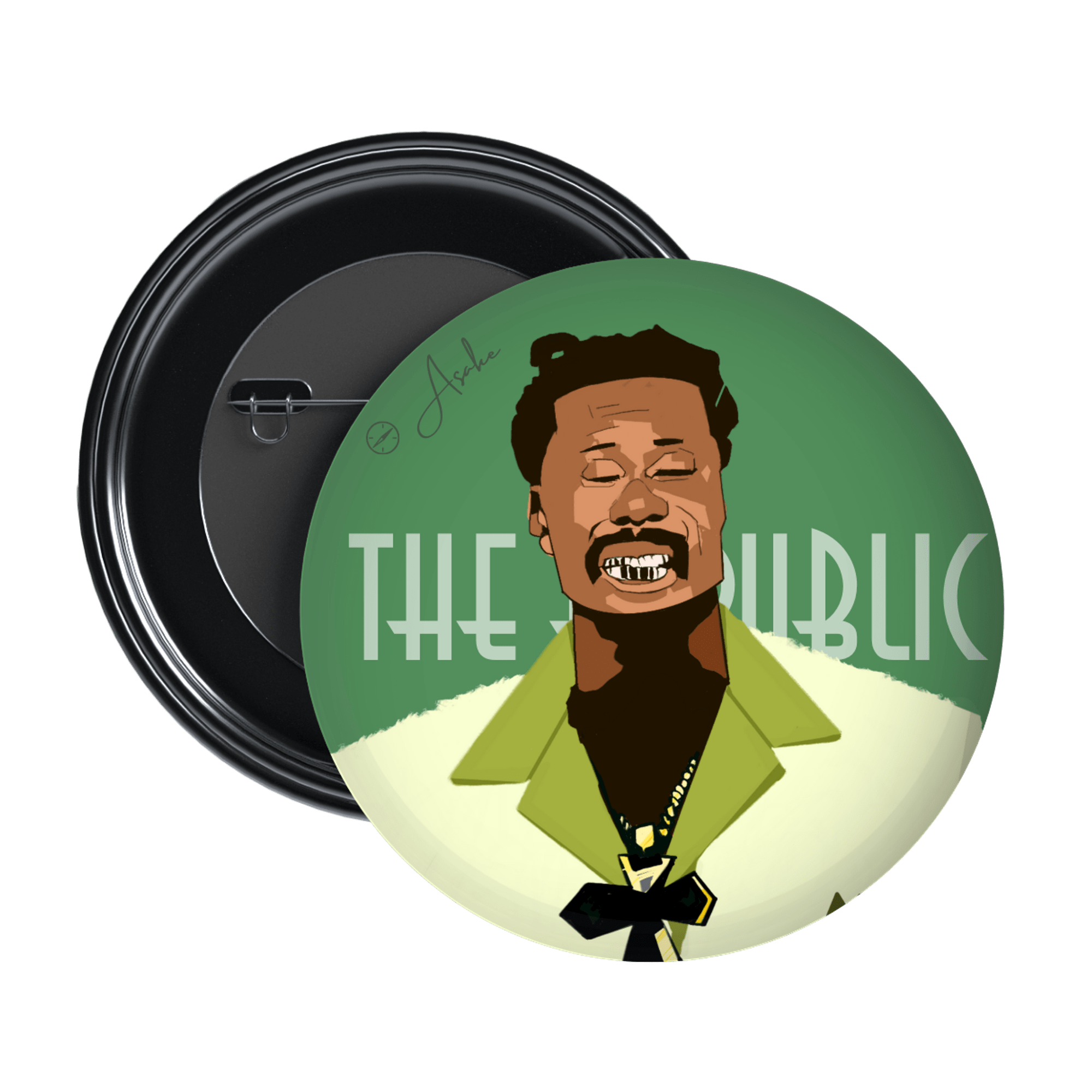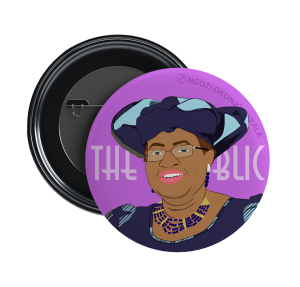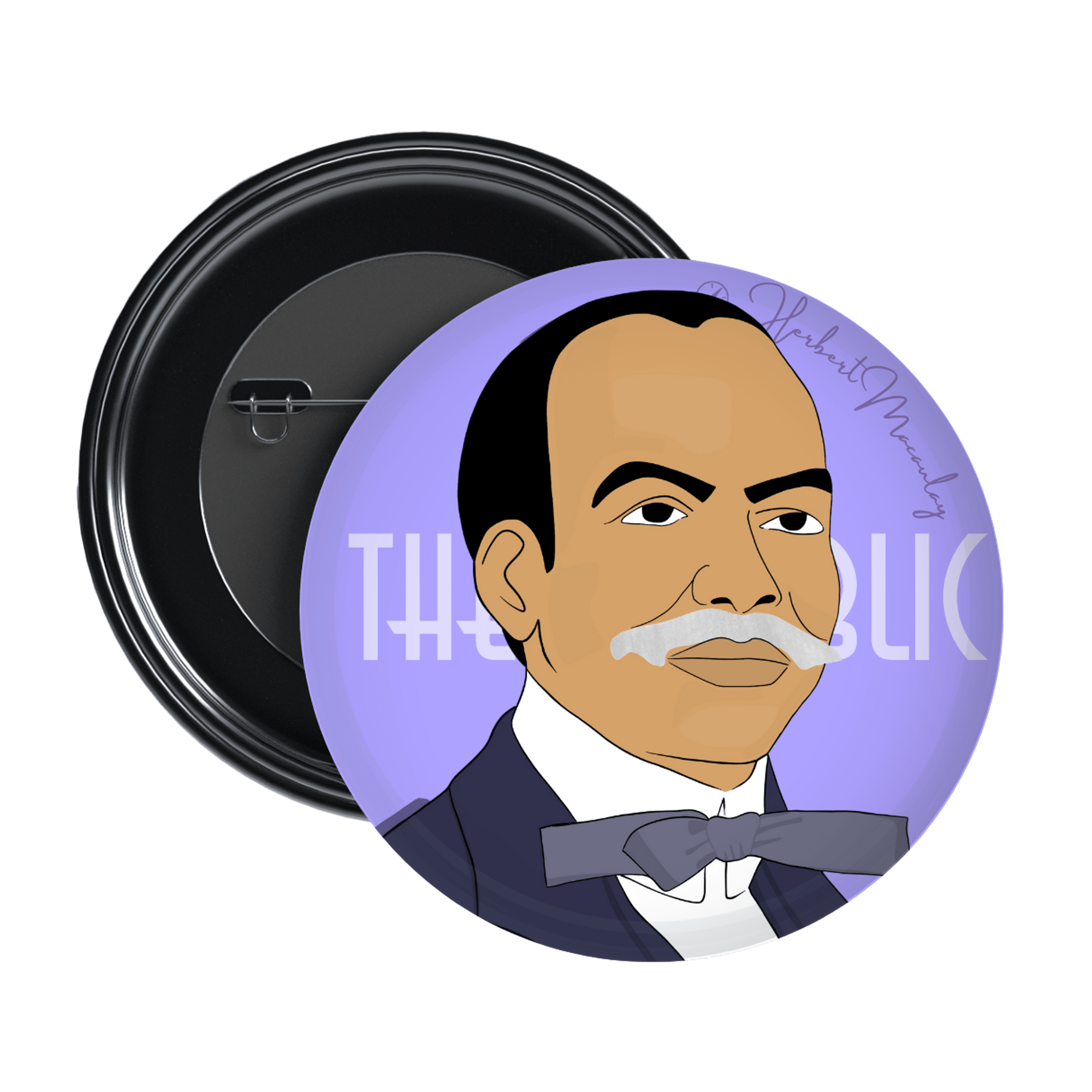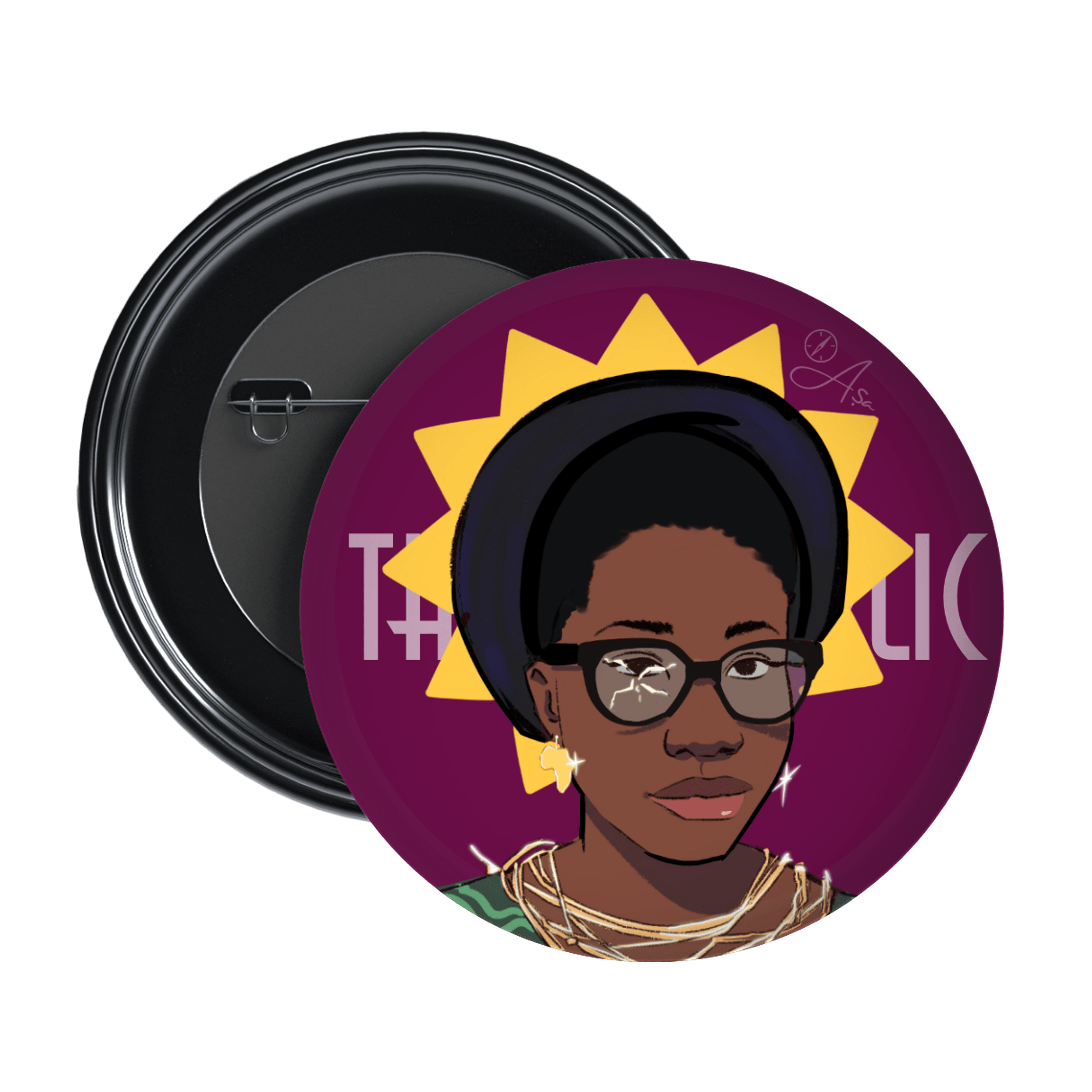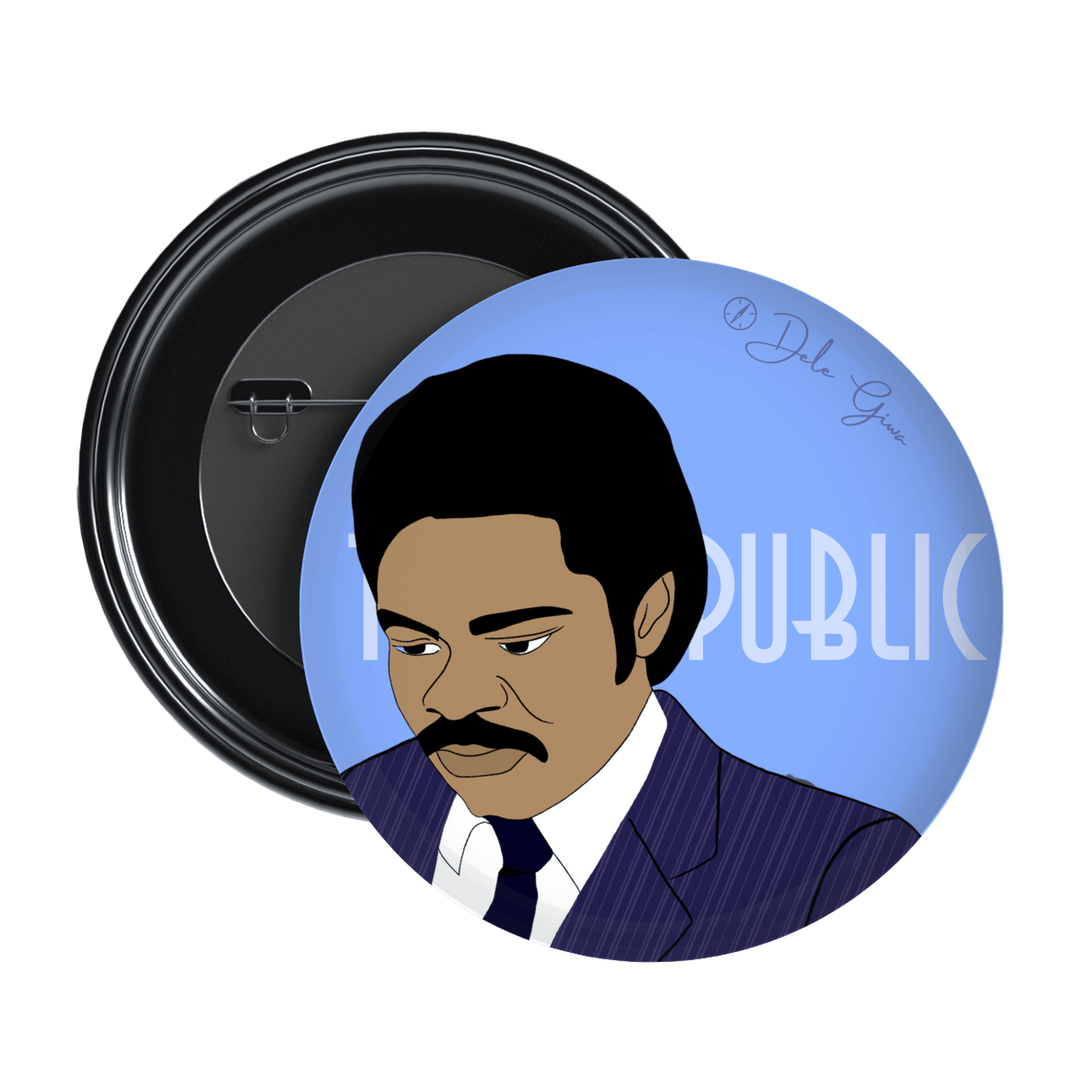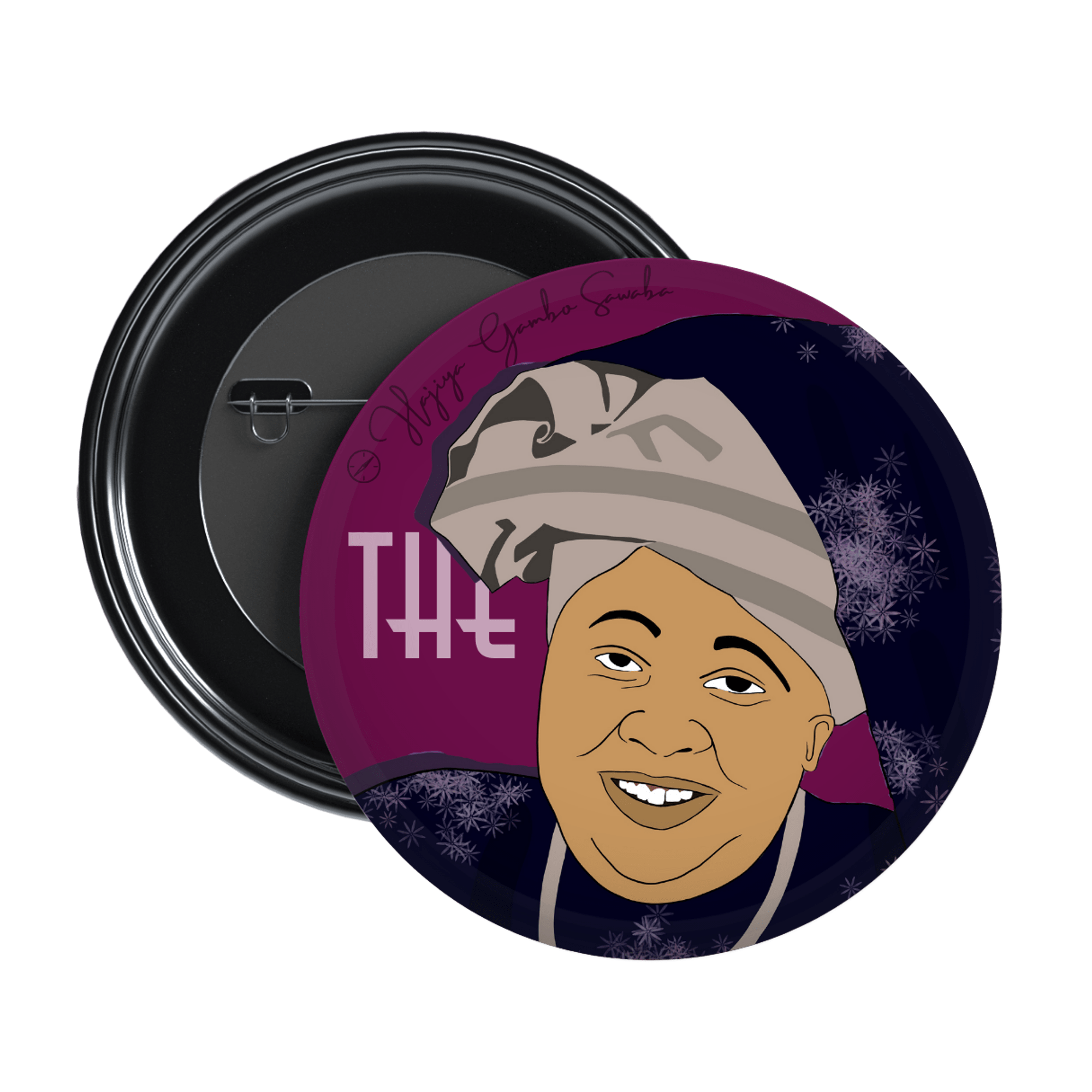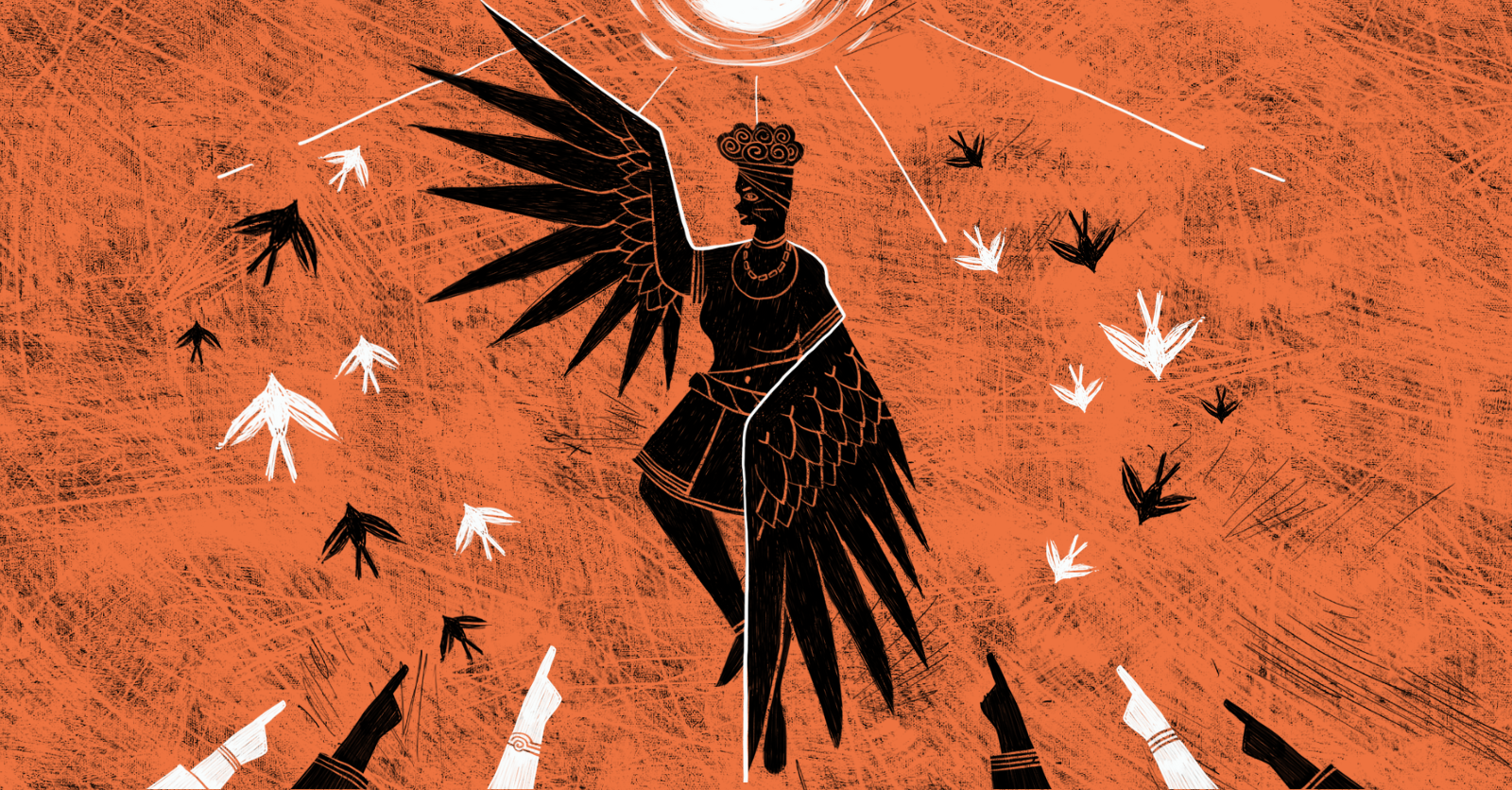
Birdwoman. Illustration by Charles Owen (blvninjv).
the ministry of ARTS / BOOKS DEPT.
Birdwoman

Birdwoman. Illustration by Charles Owen (blvninjv).
the ministry of ARTS / BOOKS DEPT.
Birdwoman
This story features in our forthcoming print issue, Nigeria Imaginary. Pre-order the magazine at our 20 per cent advance discount, here.
Felicity was born unhappy. She was conceived when her parents were young and unmarried. They wedded immediately after the pregnancy was confirmed, then proceeded to use religion to punish themselves for as long as Felicity lived with them. There were evening prayers filled with loud supplications to God for forgiveness while she knelt there feeling every inch the mistake that they perceived her to be. There was the remittance of 50 per cent of their income to the church, so that she never got those new shoes or money to go on the class excursion to Olumo Rock.
She grew up unhappy too, sharing a tiny room with an older cousin who took the frustrations of being unemployed in a thriving city out on Felicity—slaps and kicks that left marks long after the physical scars had healed. Even when she ran away from home at nineteen—her bag heavy with money she’d stolen from her family—she remained unhappy. She paid for an apprenticeship at a tailor’s shop on the other side of Lagos, where she excelled. When she became assistant manager after a few years, she promptly poached all her employer’s good tailors to start her own business. But even then, though she was surrounded by the well-oiled machinery of her successful business, happiness eluded her.
Today, Felicity is a tall woman of forty-five with big feet and round shoulders that hunch forward. Her mouth is downturned and her thin bottom lip juts out, giving her a permanent look of one who has eaten raw bitter-leaf. She is still unhappy and her tailors sometimes attribute her constant displeasure to her unmarried status.
‘If man for dey, shebi she go dey smile?’ they whisper among themselves. But men do nothing for Felicity and she looks on, oblivious to meaning, face as blank as calico cloth, when one stares at her too long.
Felicity is on her way to buy sewing thread in bulk from Agege Market. She likes to do the shopping herself as she trusts no one. Her footsteps are heavy on the market streets cluttered with Gala wrappers and unlucky lottery tickets, stained pink by the juice from baskets of tomatoes. Her right arm hugs her handbag tight to herself while her left hand further protects it from probable grasping hands. She has been robbed before; her stern sneer hadn’t prevented pickpockets from approaching.
She walks past the men stretching out pairs of jeans—snapping the fabric taut to show its tensile strength, calling out to women younger and prettier than she is. She walks past the shops where the girls selling bedazzled aṣọ-oke and lace cloth look right through her, searching for potential customers. But when she meets a crowd in her path, Felicity stops.
It is her birthday today, but she has told no one. There is no one to tell. She has no friends and she is not sociable enough with her staff to have them pretend to care. On this day every year, Felicity does something out of character. One year, she made herself a long red dress from see-through chiffon. She stood in front of her mirror for hours in this dress, turning this way and that—never smiling, just staring. As she studied herself, she mentally tucked in a flab here and trimmed a bulge there, but she wasn’t satisfied. She peered into the mirror, her mind hacking away at her person—too grounded, too heavy—imagining she was nothing but bones and that the red dress fluttered in the air.
Another year, she bought herself a huge bowl of ice cream from the Big Treat Supermarket down the street and gave her staff the day off. Amongst the immobile sewing machines and headless mannequins, she sat in the silence of her shop and ate her banana‑flavoured ice cream, spoonful after spoonful, until the white of the plastic bottom stared back at her, the cold morsels settling in her belly like dead weight, pinning her down.
Now, she moves toward the nucleus of the crowd to investigate its cause. People naturally step aside for the tall, unsmiling woman. In the middle of the human circle is a small man selling potions. ‘Solutions,’ he calls them. She hisses and starts to go away, shoving people aside, when she hears someone say to another, ‘Him say e be magician o. E go soon show us.’
shop the republic
The mention of the word magician has made Felicity pause. There is a flapping in her chest that she doesn’t understand. She turns back. It is her birthday after all; she can afford to humour a trickster. She looks around at the swelling audience, their eyes wide in anticipation. She shakes her head at their naïveté.
She pushes her way back to the front of the crowd and scans the wiry little magician. He is wearing a badly tailored white dashiki: threads dangle from the hem of the trousers and the blouse is too short for his torso, making him look even shorter. He is bald and his ashy lips combined with the smattering of bumps on his scalp give an aura of ill health. Despite this, he hops from foot to foot as he proffers his potions to cure cancer, treat erectile dysfunction, and bring home runaway husbands. His notice flits from person to person, his excitement matching that of his audience, who have left their shops to be entertained, as if he too will be amazed by his own acts. Felicity shuffles in impatience.
And then it is time. Felicity observes that he stows away his proceeds before starting his magic show, probably so that he will not be totally disadvantaged when things go awry. Smart, Felicity thinks. He introduces himself as Ayao and presents a low bow. He starts with a few card tricks. A member of the crowd picks out a card, a lot of skipping and dancing is done, and then he reveals the card—seemingly picked at random—to the exclamation and yelling of the people. They yelp in delight as he does this over and over. Felicity follows his moves, trying to uncover the charade.
Then a hush falls. It is time for serious business.
Ayao asks for a volunteer.
‘For what o?’ someone yells, and the people laugh. But she can hear the uneasiness pulsate in the air after their laughter has died down.
Ayao turns in slow circles to take in his captive audience. ‘To fly,’ he says.
There is a small, barely perceptible general step back. Felicity almost laughs. Almost. She sees Ayao’s game: if everyone is too frightened to volunteer, the magician can feign disappointment and leave the market with his reputation intact.
So, she steps forward.
She can sense the crowd’s surprise.
Ayao gestures for her to walk toward him. She does. He raises his left arm to shush the murmurs of the crowd.
‘Do you believe?’ he asks Felicity, his voice loud enough to carry over the crowd.
Felicity lowers her gaze so that she is staring right at Ayao. His lashes are long and bushy, emphasizing the size of his dark eyes.
‘No,’ Felicity whispers, but in the quiet of the marketplace, it is just as loud.
‘No?’ Ayao asks, a sharp note in his voice.
‘No.’
Ayao moves away from her, step by step so that his eyes do not stray from hers.
‘Do you want to drop your bag?’ he asks.
‘No,’ Felicity repeats, tightening her grip on the bag in blatant suspicion.
‘Okay.’ Ayao walks back to her. He walks around her. He dances around her. Then he begins to chant, ‘Àṣẹ òrìsà l’ẹ́nu mi! Àṣẹ òrìsà l’ẹ́nu mi!’ On and on, he establishes the deities he is invoking.
Felicity stands there—still, waiting for him to tire.
But he goes on, louder and faster. ‘Àṣẹ òrìsà l’ẹ́nu mi!’
shop the republic
Felicity has seen a man fly once. He jumped off the Third Mainland Bridge with his arms stretched out in front of him. As the people around her honked and screamed, Felicity had envied his freedom.
Then there is smoke, as there is in every tacky magician’s show. Then people are screaming.
Why are they screaming? Felicity raises an arm to clear the smoke in front of her face. But her arm doesn’t rise. Instead, feathers flap.
And now she is high above the ground, looking down at the market people running away from Ayao. The magician gestures for her to come to him. Ayao’s hands rise to his shiny head, then lower, then rise again. He gestures toward her again, then turns on his heel and flees from a situation that’s now out of his control. Felicity can see him winding through the streets.
Someone has snatched her bag in the melee, but she doesn’t care. She is far away from the chaos. She can now see a pattern to the rowdy market streets, and Felicity thinks how tiny the world must look to God.
And then she’s off, because she cannot think of a reason not to go. The air here is so light, and she is so buoyant. Felicity feels like she has been relieved of a lifelong burden of being. There is a buzzing echoing through her new tiny frame. Felicity is enthralled, riding on waves of air, her former weight forgotten, movement ruffling all her feathers—how they tickle, how delicate it all feels, precarious. How is she so weightless but still so strong? She slices through the air as she moves farther and farther from the market scene. She smiles. But there is no one to see it. Nobody to witness what it is for a bird to smile.
shop the republic
Felicity wants to see herself. She wants to observe her new form the way she did when she wore that long red dress. What type of bird is she? Is she colourful? Is she as black as the unhappiness that now seems foreign to her? She opens her mouth but does not recognize the warble that escapes. She knows nothing about birds.
Felicity heads toward a high-rise building with a glass exterior, jutting so far out of the earth like a challenge to gravity.
She starts to descend toward this building. Closer and closer, her reflection approaches her. She squints to bring the fuzz into focus. And then there is a boom. She has hit the glass, beak first. Pain jolts through her small physique in reverberations and the world goes black. Felicity feels herself falling and falling, and as she falls, she feels the heaviness of her being return.
When she crashes into the ground, she is completely Felicity again. She is engulfed in pain. It overwhelms her. She starts to weep. Do birds cry? When she tries to move, pain shoots out from her joints in waves. Her bones are broken.
Someone screams ‘Amusu!’ and another yells ‘’ Then there is a circle of people around her, calling her witch in their various languages. And she feels so weak, so weak and so tired. Blood seeps from unidentified gashes and she twitches with every fresh flood of pain. Now she is the show.
A stone smacks into her back and rolls to the floor, red with her blood. She realizes that she is naked. Other stones follow. The people close in; their fear chokes her—how does one fall as a bird and land as a woman? Their horror bites at her shredded skin like sand flies. Her old body feels weighed down, more than it has ever been, beneath their stones and their words.
A feather flutters into her sight and Felicity is reminded of her temporary weightlessness. She is in pain now, but she flew! She flew!
There are more voices and more stones, but Felicity succumbs to the rising within her. Her body sinks further into the ground, but she is leaving it behind and rising and rising. . .⎈




